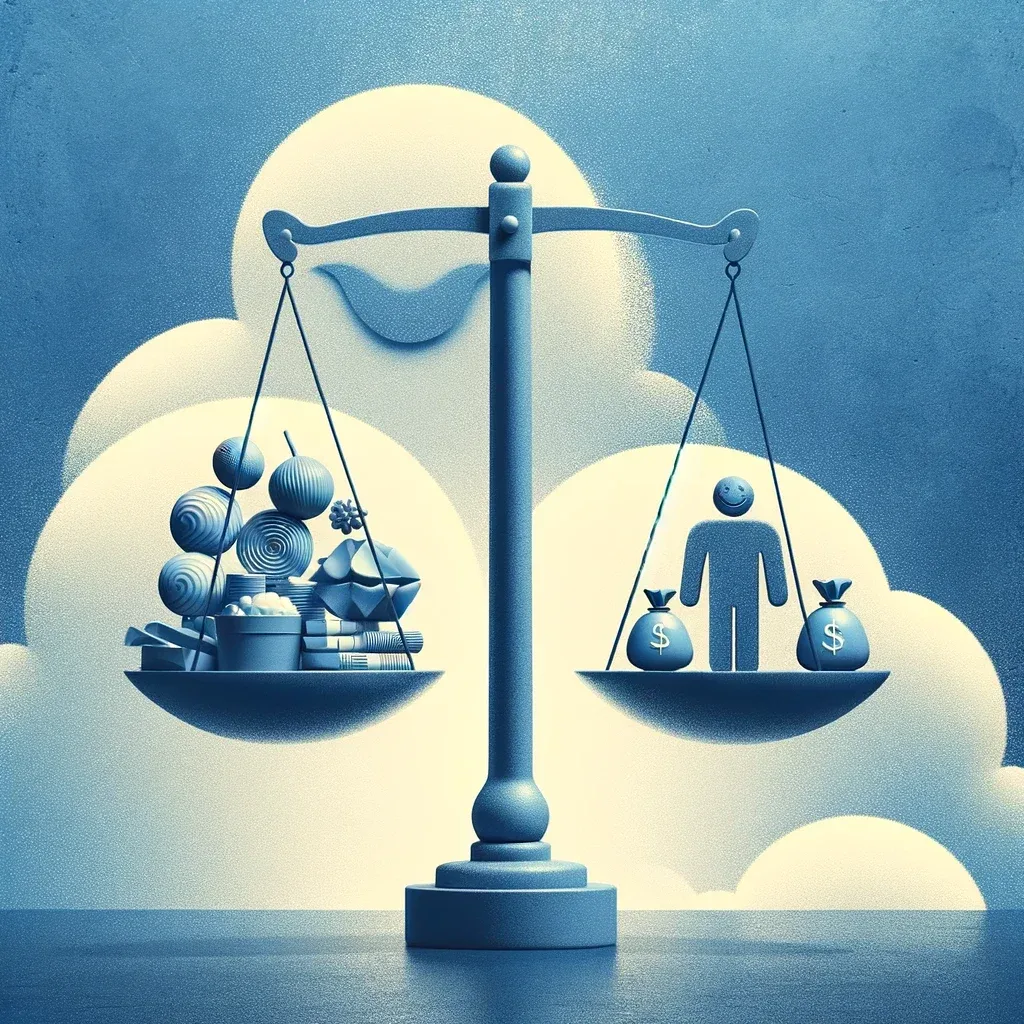In the contemporary era, characterized by consumerism and the constant search for immediate satisfaction, the attachment to material goods has become a pressing issue. This article aims to explore in depth the nuances of this attachment, its psychological and social implications, and how we can manage and, in some cases, overcome this dependence. Throughout this text, the factors that contribute to material attachment, its consequences on individual and collective life, and strategies for cultivating a healthier relationship with material goods will be discussed.

The Nature of Material Attachment

Definition and Context
Attachment to material possessions refers to the tendency to overly value physical objects and allow them to significantly influence our happiness and self-esteem. This behavior is often fueled by cultural and social factors that promote consumption as a path to success and satisfaction.
Contributing Factors
Several factors contribute to the development of material attachment, including cultural influences, social pressures, advertising and marketing, and even individual psychological aspects, such as the search for security or status. Modern society, with its focus on material goods as indicators of success, plays a crucial role in perpetuating this phenomenon.
Psychological Impacts
Excessive attachment to material goods can lead to a series of negative psychological impacts, such as anxiety, chronic dissatisfaction and even mental health problems. Furthermore, this attachment can overshadow deeper, more meaningful values, affecting the ability to enjoy non-material aspects of life.
Social Consequences of Material Attachment

Effects on Personal Relationships
Attachment to material goods can negatively impact personal relationships, creating a dynamic where material objects take on greater value than human connections. This can lead to conflict and a feeling of isolation or misunderstanding.
Environmental impact
The incessant search for new material goods contributes significantly to environmental problems, such as the depletion of natural resources and pollution. The constant production and disposal of products creates an unsustainable cycle with serious consequences for the planet.
Inequality and Consumerism
Material attachment is intrinsically linked to consumerism, which perpetuates social and economic inequality. While some individuals accumulate assets, others struggle to meet basic needs, exacerbating socioeconomic disparities.
Overcoming Material Attachment

Reflection and Self-knowledge
The first step to overcoming material attachment is reflection and self-knowledge. Understanding the reasons behind attachment and recognizing how it affects your life can pave the way for significant changes.
Alternative Satisfaction Practices
Seeking alternative sources of satisfaction that are not based on material goods is crucial. This may include hobbies, relationships, personal achievements, and activities that promote personal growth and intrinsic satisfaction.
Minimalism and Conscious Consumption
Adopting minimalism and conscious consumption practices can help reduce attachment to material goods. This involves making more considered consumption choices, valuing quality over quantity and recognizing sufficiency over abundance.
Strategies for a Balanced Life

Education and Social Awareness
Promoting education and social awareness about the impacts of consumerism and material attachment is fundamental to fostering cultural change. This includes understanding the environmental and social implications of excessive consumption.
Strengthening Intangible Values
Strengthening immaterial values, such as interpersonal relationships, self-acceptance and personal growth, can help shift the focus away from material goods. Cultivating gratitude, empathy and generosity are fundamental practices in this process.
Community Support and Social Media
Participating in communities and social networks that promote less materialistic lifestyles can offer support and inspiration. These communities can be sources of encouragement and ideas for living a more balanced life that is less dependent on material goods.
Conclusion
Attachment to material goods is a complex phenomenon with profound personal and social implications. By understanding its roots and consequences, we can begin to disentangle our happiness and sense of worth from material objects and pave the way for a richer, more meaningful life. This does not mean completely giving up material possessions, but rather finding a healthy balance and a more conscious and intentional relationship with them. In doing so, we not only improve our own lives, but we also contribute to a more just and sustainable world.
Frequently Asked Questions About Attachment to Material Goods
Explore the key issues surrounding attachment to material possessions, offering insights and guidance for a deeper understanding and a more balanced approach to material possession.






